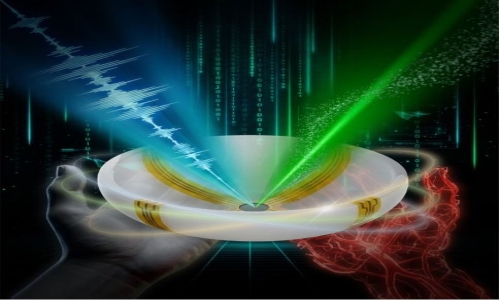


 12:35:34
12:35:34  2024-06-27
2024-06-27  1374
1374
The sun and the moon are different from each other not only in terms of size, but also in terms of function. The sun generates light, but the moon does not. The moon merely reflects the light coming from the sun. Every high school student today knows this. A man or woman in the seventh century, however, would not have known about this fine distinction between the sun and the moon. To such a person, the two would appear as a greater light and a lesser light. Such a person would observe that the greater light lights up the day and the lesser light lights up the night. And this indeed is how the sun and the moon were described in previous books. The Bible, describing the creation, says: "Allah made two great lights the greater light to govern the day and the lesser light to govern the night" (Genesis 1: 16). The author of the Qur'an however, was aware that this comparison between the sun and the moon is not adequate. Therefore the Qur'an does not refer to them as being a greater and a lesser light.
The Qur'an says: "Allah is the One who made the sun a shine and the moon a light" (Qur'an 10:5).
Commenting on this, Dr. Bucaille says: "Whereas the Bible calls the sun and moon 'lights', and merely adds to one the adjective 'greater' and to the other 'lesser', the Qur'an ascribes differences other than that of dimension to each respectively" (The Bible, the Qur'an and Science, p. 156).
Similarly, the Qur'an says: "Blessed is the One Who placed the constellations in heaven and placed therein a lamp and a moon giving light" (Qur'an 25:61). Here again, the difference between the sun and the moon is noted. The sun is called a lamp, and the moon is called an object giving light. Again in the Qur'an Allah says that He "made the moon a light" and "made the sun a lamp" (Qur'an 71:15-16).
Furthermore, Allah calls the sun a "blazing lamp" (Qur'an 78:12-13). This term which is used for the sun is never used for the moon in the Qur'an. In all of these verses, Allah expresses the notion that the sun and the moon are "not absolutely identical lights" (The Bible, the Qur'an and Science, p. 156). Dr. Bucaille draws his conclusions from what he found in the Qur'an about the sun and the moon: "What is interesting to note here is the sober quality of the comparisons, and the absence in the text of the Qur'an of any elements of comparison that might have prevailed at the time and which in our day would appear as phantasmagorial" (The Bible, the Qur'an and Science, p 157). In short, "There is nothing in the text of the Qur'an that contradicts what we know today about these two celestial bodies." (The Bible, the Qur'an and Science, p. 157).
Reality Of Islam |
|

Researchers

A new metas

As air frye

A newly dev
 9:3:43
9:3:43
 2018-11-05
2018-11-05
10 benefits of Marriage in Islam
 7:5:22
7:5:22
 2019-04-08
2019-04-08
benefits of reciting surat yunus, hud &
 9:45:7
9:45:7
 2018-12-24
2018-12-24
advantages & disadvantages of divorce
 11:35:12
11:35:12
 2018-06-10
2018-06-10
 6:0:51
6:0:51
 2018-10-16
2018-10-16
 9:42:16
9:42:16
 2022-10-19
2022-10-19
 2:2:13
2:2:13
 2022-10-08
2022-10-08
 7:26:19
7:26:19
 2022-04-08
2022-04-08
a hero waters thirsty wild animals
 9:4:9
9:4:9
 2022-01-06
2022-01-06
 8:21:9
8:21:9
 2018-06-21
2018-06-21
 4:2:19
4:2:19
 2022-10-10
2022-10-10
 11:11:59
11:11:59
 2023-02-01
2023-02-01
 5:41:46
5:41:46
 2023-03-18
2023-03-18
| LATEST |